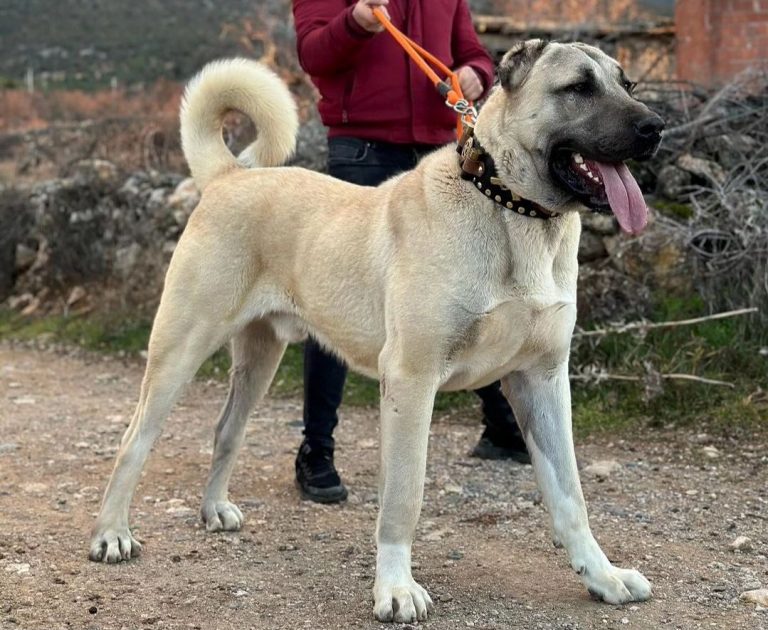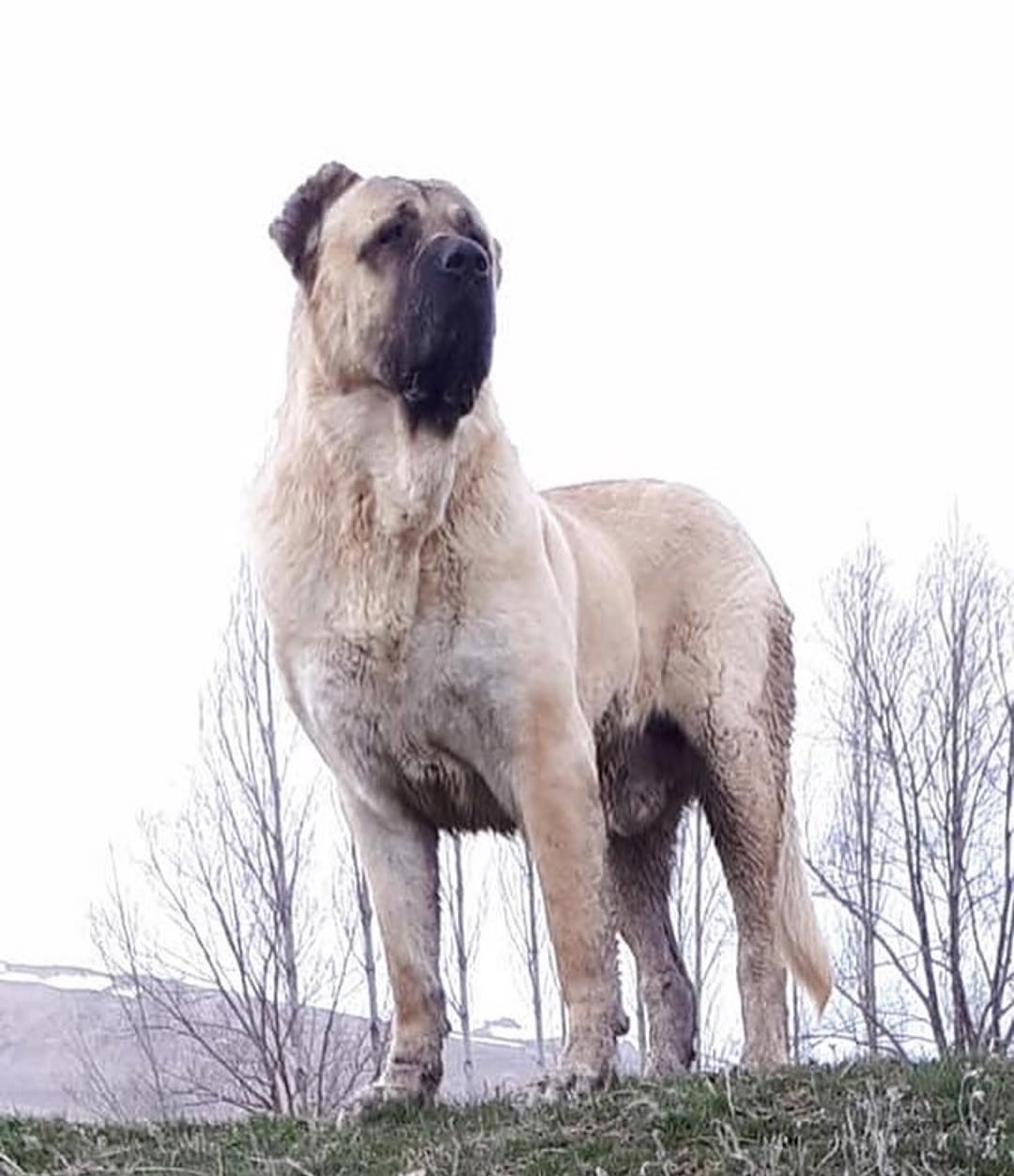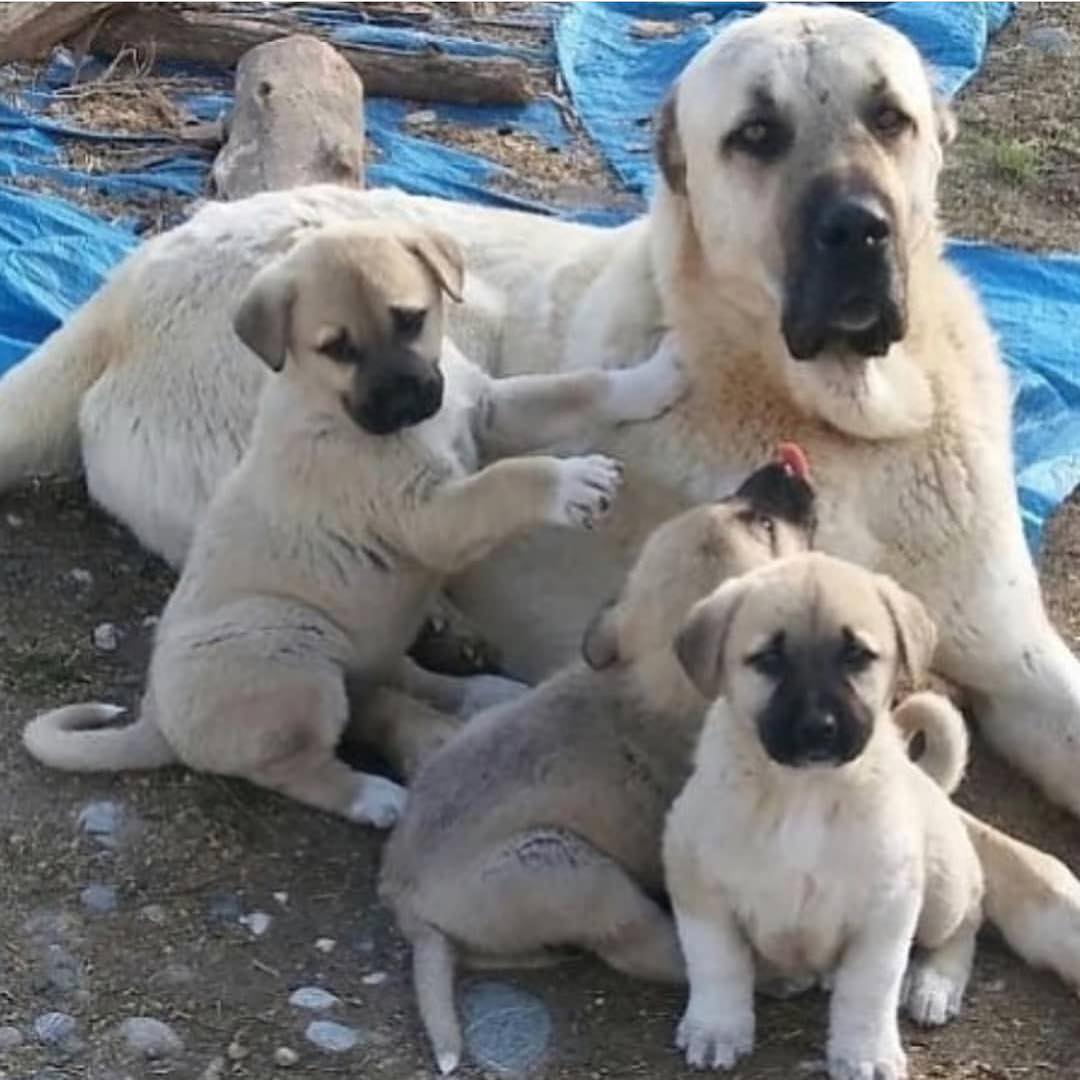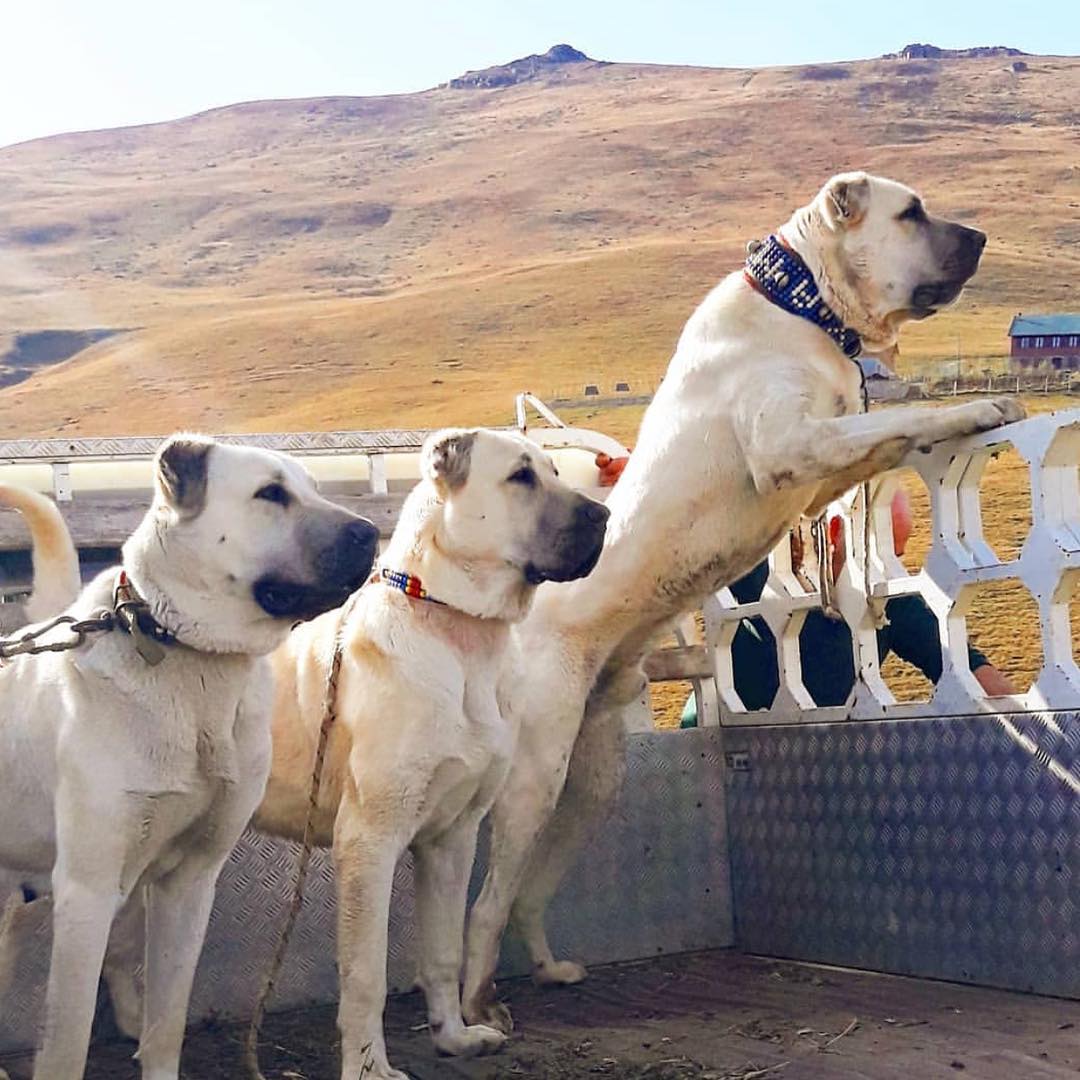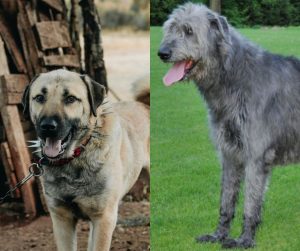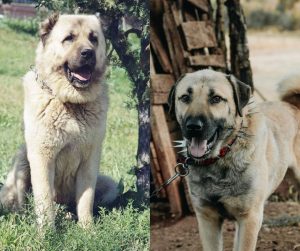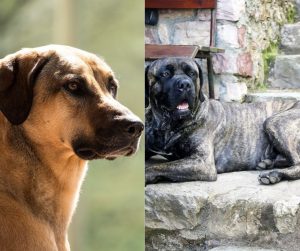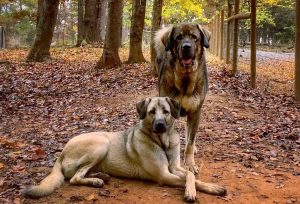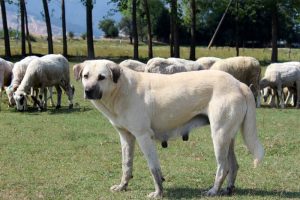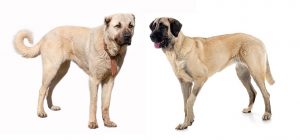The Turkish Kangal is a large, powerful, heavy-boned dog that belongs in the group of the biggest dogs in the world. The size and proportions of the dog have been developed naturally thanks to its breeding and use as a guardian against protectors. Given the size of the breed, you can expect a rather higher Kangal dog price, right?
Well, today, we will discuss other costs regarding ownership of this breed. This calm, controlled, powerful, protective, and independent dog might be aloof toward strangers. Yet, if you socialize it properly, the well-trained Kangal is friendly and sociable.
Breed Overview
The Turkish Kangal dog, often referred to simply as the Kangal, is a remarkable and ancient breed known for its unwavering loyalty, imposing presence, and formidable protective instincts. Originating in the Sivas region of Turkey, the Kangal has a history dating back several centuries as a livestock guardian dog, primarily tasked with protecting livestock from predators like wolves and bears.
This breed is renowned for its sheer strength, agility, and sharp intelligence, making it one of the world’s most effective guardians. The Kangal boasts a distinctive appearance, characterized by a well-muscled body, a short double coat, a dark mask around the face, and a calm, self-assured demeanor.
Beyond its protective nature, Kangals are known for their gentle and affectionate disposition toward their human families. These dogs are highly regarded for their unwavering loyalty and make excellent companions for those who can provide them with the space, exercise, and socialization they require.
History and Origin
As we mentioned before, the purebred Kangal originates from the Sivas province, in Turkey. Considered to be the national dog of Turkey, it is a working breed developed for its ability to protect livestock.
In Turkey, the canine is used for protecting livestock, but also in the security forces. They can protect both people and herds from animals and predators, including wolves, lions, jackals, and cheetahs.
In Turkey, and parts of Africa, the Kangal Shepherd dog is quite popular. Other names you will find for this dog include Kurdish Kangal and Anatolian Lion. The breed has walked the planet for more than a thousand years.
Dogs in Kazakhstan, Tajikistan, Uzbekistan, and Afghanistan are closely related to the Kangal.
Does The AKC Recognize The Kangal breed?
The American Kennel Club doesn’t recognize the Kangal as a distinct breed. Instead, they recognize the Anatolian Shepherd. The American Kennel Club considers the Turkish Kangal the same dog as the Anatolian Shepherd.
There are, however, clubs that recognize both breeds. For example, UKC, or the United Kennel Club, recognizes both Anatolian Shepherds and Kangals.
Can You Find Turkish Kangal in The US?
While the AKC doesn’t recognize the breed specifically or set a breed standard, there are breeders that you can find. There are many reputable Kangal dog breeders in the US.
There is a serious debate over the Kangal vs Anatolian Shepherd. Some consider them a separate breed, others the same. Try contacting breeders, and ask for more information whether they consider them the same breed or not.
In the US, you can find a Kangal breeder in California, Kentucky, Massachusetts, North Carolina, Texas, and more.
Can You Keep One in an Apartment?
Sadly, no. While you can always try, we do not recommend it. These dogs are not apartment canines. They are relatively inactive indoors and will thrive in a household with a large yard.
They are naturally protective due to their history as livestock guardian dogs. Their instinct is to protect the household, its owners, and everything on it.
So, unless you can provide ideal living conditions, we do not suggest getting one for your family.
Is The Breed Good With Kids?
Yes, a well-socialized Kangal will be gentle and loving with children. Not to mention, he is generally protective of his family.
They can also be trained and socialized to be playful and affectionate around children.
Kangal Dog Temperament
I think we have to talk about the temperament of this Turkish breed. The Kangal has a unique personality and temperament. There are reasons why many people want to own this large dog. And they go beyond their guarding instincts and nature.
The distinct Turkish breed is well-tempered and loyal. They can adjust and adapt to different settings, but they thrive when living on a large property with plenty of space to run and roam around.
One of their main features is being alert and territorial. They will do anything to protect the people they love.
One thing we have to note is they need a firm and consistent owner. If they sense you as a submissive or weak dog owner, this canine will assume the alpha leader position. That can spell trouble for everyone involved.
How Much Should You Expect To Pay?
Getting a Turkish Kangal from a reputable breeder might cost you anywhere between $600 and $1,500. The Kangal dog price ranges depending on the breeder and his history and expertise with the dog breed.
We also have to note the rareness of the breed. Kangals are common in Turkey, but it is not easy to export one from there. The country tries to protect its national dog, and you cannot see it in many other parts of the world.
From a very well-bred line, the Kangal dog price might go even higher, up to $2,000.
Costing More Than The Initial Price
The challenge with a dog like Kanga is that the initial price is just a small portion of the cost. The large dog breed carries its own set of costs.
While these dogs don’t need toys or grooming, they do eat plenty of food. A fully-grown male might need 7 cups of dog food per day. That is almost 3.5 lbs of dog food per day or 100+ lbs of dog food per month.
Now, consider the fact that the average price is $50 for a bag of food, and you need two or three of those, the price can go high quickly. You can easily look at a budget of $2,000 to $3,000 for food only per year.
And then, you have to take into consideration health issues. Larger dogs have more health concerns than smaller dogs. Now, due to their herding nature, Kangals are rather healthy.
Yet, there are still health concerns like Entropion, Lipoma, Hip Dysplasia, and Benign tumors. Make sure to take your dog to regular vet checkups.

